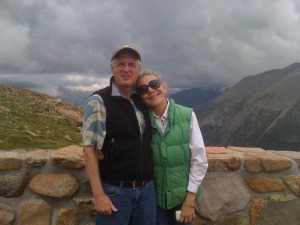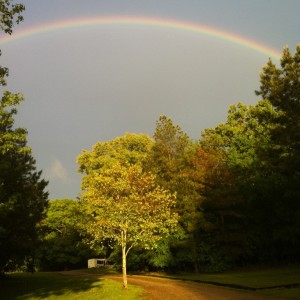Trust in the Lord with all your heart and lean not on your own understanding; in all your ways submit to him, and he will make your paths straight. … Honor the Lord with your wealth, with the first fruits of all your crops; then your barns will be filled to overflowing, and your vats will brim over with new wine. …. Blessed are those who find wisdom, those who gain understanding, for she is more profitable than silver and yields better returns than gold. She is more precious than rubies; nothing you desire can compare with her (Selected from Proverbs 3:5-15).
“A generous person will prosper; whoever refreshes others will be refreshed (Proverbs 11:25).
A Biblical Take on Generosity
 Pastors frequently speak of how much the Bible talks about money—and the Bible does have a lot to say about money. What surprises me is the volume of teaching about giving and generosity. Right at the beginning of Genesis, in the story of Cain and Abel, we see the importance of giving back to God. In the Pentateuch (the beginning of the Old Testament), offerings are made, tithing is taught, and the importance of generosity is underscored. Jesus tells stories and parables about giving and generosity, and some of Paul’s most moving and most quoted phrases, like, “God loves a cheerful giver” come from his letters (I Cor. 9:6-7). Generosity is encouraged and taught throughout the Bible. It is part of the wise and righteous life. Furthermore, the Bible teaches that a generous person is a blessed person. There is no living wisely without living generously.
Pastors frequently speak of how much the Bible talks about money—and the Bible does have a lot to say about money. What surprises me is the volume of teaching about giving and generosity. Right at the beginning of Genesis, in the story of Cain and Abel, we see the importance of giving back to God. In the Pentateuch (the beginning of the Old Testament), offerings are made, tithing is taught, and the importance of generosity is underscored. Jesus tells stories and parables about giving and generosity, and some of Paul’s most moving and most quoted phrases, like, “God loves a cheerful giver” come from his letters (I Cor. 9:6-7). Generosity is encouraged and taught throughout the Bible. It is part of the wise and righteous life. Furthermore, the Bible teaches that a generous person is a blessed person. There is no living wisely without living generously.
God is a Generous God.
 The Bible begins with a majestic retelling of the story of creation. In that story, we see God creating the entire world—and everything that is in it. We see the creation of the heavens and the earth, of the sun, moon, and stars, of the wonders of the heavens and the beauty of the earth. At last, God creates the human race, into whose care God places his beautiful creation. Not only does he put creation under our care, but he specifically says that the human race can use all of the bounty he has created to meet our human physical and other needs. Our Generous God generously gave the human race the entire world.
The Bible begins with a majestic retelling of the story of creation. In that story, we see God creating the entire world—and everything that is in it. We see the creation of the heavens and the earth, of the sun, moon, and stars, of the wonders of the heavens and the beauty of the earth. At last, God creates the human race, into whose care God places his beautiful creation. Not only does he put creation under our care, but he specifically says that the human race can use all of the bounty he has created to meet our human physical and other needs. Our Generous God generously gave the human race the entire world.
The writer of Psalm 8 puts it this way:
Lord, our Lord, how majestic is your name in all the earth! You have set your glory in the heavens. Through the praise of children and infants you have established a stronghold against your enemies, to silence the foe and the avenger. When I consider your heavens, the work of your fingers, the moon and the stars, which you have set in place, what is mankind that you are mindful of them, human beings that you care for them? You have made them a little lower than the angels and crowned them with glory and honor. You made them rulers over the works of your hands; you put everything under their feet: all flocks and herds, and the animals of the wild, the birds in the sky, and the fish in the sea, all that swim the paths of the seas. Lord, our Lord, how majestic is your name in all the earth!
In this psalm the generosity of God is clearly laid out. God is the creator of the heavens and the earth. God is the creator of the human race. However, God is not just our creator. God is also our defender and savior. This we see most clearly in the Prophets, like Isaiah and in the New Testament. In the New Testament, Jesus, the wisdom of God in human form, comes to save the world. God is so generous that he sent his “Only Begotten Son,” the very “Word of God, God himself, to save his lost and wandering creation and creatures.
It is important to remember all God has done. God created each one of us. God provided for each one of us. God saved each one of us. God gives to us more generously than we could ever give to God. God is not just good. God is generous—generous unto death.
Called to be Generous Like God.
 One of the least understood teachings of the Christian faith is this: God desires us to be like God whom we see revealed in Jesus. Jesus says that if we love him, we will do his works (John 14:15, 23). Jesus also says that we are to be perfect, just as our heavenly Father is perfect (Matthew 5:28). Paul urges believers to be imitators of Paul as he is an imitator of Christ. In First John it is put this way, “Dear friends, now we are children of God, and what we will be has not yet been made known. But we know that when Christ appears, we shall be like him, for we shall see him as he is” (I John 3:2).
One of the least understood teachings of the Christian faith is this: God desires us to be like God whom we see revealed in Jesus. Jesus says that if we love him, we will do his works (John 14:15, 23). Jesus also says that we are to be perfect, just as our heavenly Father is perfect (Matthew 5:28). Paul urges believers to be imitators of Paul as he is an imitator of Christ. In First John it is put this way, “Dear friends, now we are children of God, and what we will be has not yet been made known. But we know that when Christ appears, we shall be like him, for we shall see him as he is” (I John 3:2).
One of the most beautiful and important doctrines of the church is its teaching that we are by faith and God’s grace children of God—part of God’s family, carriers of God’s spiritual DNA, which is self-giving love. When Jesus says, “If anyone would be my disciple, let that person deny his or herself, take up his or her cross and follow me” (Matthew 16:24), Jesus is saying we must be transformed into people of generosity who have the same love for the world and others that God had when he sent Jesus. The process of what we call “sanctification” is a process of becoming true children of God, just like Jesus.
Years ago, I had a friend who died young of heart problems. Before he died, once in a while we would go out to lunch together. I don’t like being panhandled, and when we were walking down hot, crowded Houston streets, I often passed by beggars. My friend never did. He always gave something from his pocket to the poor. One day, I asked him why. “Because God has asked us to be generous to the poor,” he answered. Since then, I’ve been a lot more generous in similar situations. My friend was a generous person, and in showing the virtue of generosity, he was like a Jesus not just to the poor but also to me.
Principles of Generous Living
The Bible and wisdom literature are full of teachings as to how we can become generous, like our generous God.
- First, if we are going to be generous, we must be creators of value. That is to say, we must use our God-given talents to create value in the world. As I mentioned in my last Blog, not all this value is monetary. If we are going to be generous with our time, we have to develop the talents God has give us so that we will have those God-given, developed talents to share with others. As workers, to be generous, we have to work hard enough to make a living.
- Second, if we are going to be generous, we must learn to save, that is we must learn not to consume all the wealth we create. We need to learn to live simply, so that we are not constantly buying more things, borrowing money to buy more things, consuming all that we earn and can borrow to keep up with either the Jones or some idea we have of what a good life entails. If we don’t save, we won’t give generously.
- Third, if we are going to be generous, we must learn to give of our first fruits. Our text says that we should share the first fruits of all that we have. In the ancient world, it meant giving of the first fruits of the harvest. Today, this means putting our giving first, not last, in our monthly budget. My particular gifts to our church come automatically out of my paycheck, first. If I receive a check for income from outside of Advent, I try to remember to write Advent a check right then and there. A generous spirit does not wait until all the other bills are paid to give. A generous spirit budgets so that all the bills will get paid after giving.
- Fourth, If we are going to be generous, we have to have a heart for the lost, the poor, and for what God is doing in the world. Without compassion, without a sense of how blessed we are to have the things we have, we will never be generous. We will never give to missions and evangelism if we do not have a heart for how blessed we are, and what our city, state, nation and world could be like if God’s kingdom were to expand.
- Finally, we have to have a generous heart. We will never be cheerful givers unless and until our hearts are like God’s heart, filled with a desire to reach out, create, use our time, talents, and treasures to bring the peace of God’s Kingdom upon the earth. Generosity, real generosity, is a matter of character, of discipline, of heart transformation. We all need to pray for generous hearts.
Blessings of Generosity
 Finally, to become generous like God we must come to a clearer understanding of what God is promising us when the Bible promises “bursting barns” and “vats of wine flowing over” (Proverbs 3:10). We need to understand why we are promised that. “A generous person will prosper; whoever refreshes others will be refreshed” (11:25). The ancient wise men and women knew that life is a little more complicated than, “If you are generous, you will be financially blessed.” Nevertheless, they observed that generous people were very frequently blessed. That has been my observation as well. As I joked with our staff this week: God promises that our barns will be filled to overflowing. He does not say just exactly how big that barn is going to be! Nevertheless, it is amazing how many stories there are about the blessing of generosity.
Finally, to become generous like God we must come to a clearer understanding of what God is promising us when the Bible promises “bursting barns” and “vats of wine flowing over” (Proverbs 3:10). We need to understand why we are promised that. “A generous person will prosper; whoever refreshes others will be refreshed” (11:25). The ancient wise men and women knew that life is a little more complicated than, “If you are generous, you will be financially blessed.” Nevertheless, they observed that generous people were very frequently blessed. That has been my observation as well. As I joked with our staff this week: God promises that our barns will be filled to overflowing. He does not say just exactly how big that barn is going to be! Nevertheless, it is amazing how many stories there are about the blessing of generosity.
In addition, we need to look at what we might call the “hidden” or “non-obvious” benefits of generosity. First, and perhaps most important of all, generous people are normally some of the most well-balanced, happy, joyful people in the world. [1] Generous people are less stressed, happier, have better marriages, and have better mental health than people who are not generous. This should not surprise us at all! Who could be healthier and more adjusted than God? Therefore, it follows that when we have the character of Christ, we will experience the blessings of a transformed life and increased Christ-likeness! This does not mean that we are all going to get rich. It does not mean that we will not have hard times. It does not mean that we will not share in the sufferings of our family, friends, fellow church members, neighbors, and nation. It means we will share the blessing of the Divine Life of God.
Copyright 2014, G. Christopher Scruggs, All Rights Reserved









